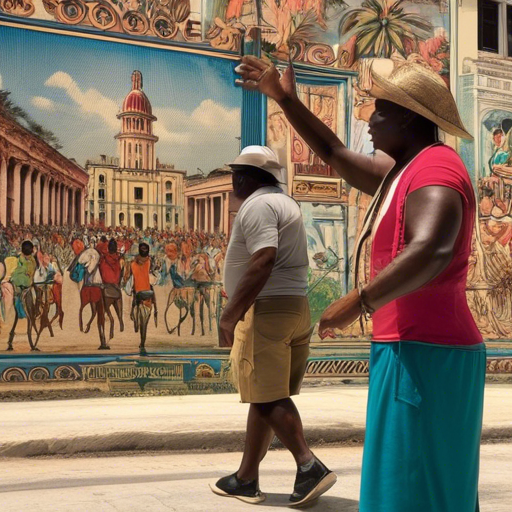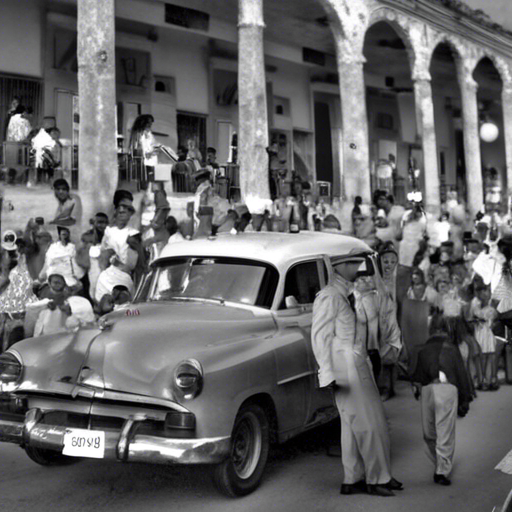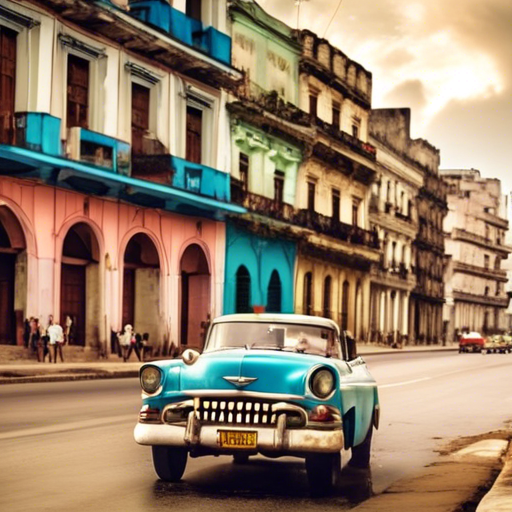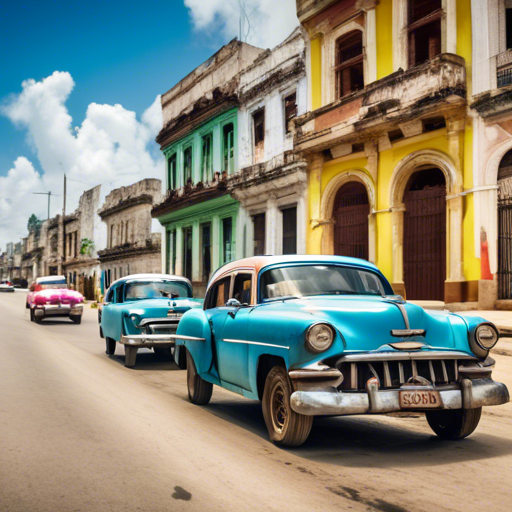 the rich tapestry of cuba's history from colonization to revolution
the rich tapestry of cuba's history from colonization to revolution
 the rich tapestry of cuba's history from colonization to revolution
the rich tapestry of cuba's history from colonization to revolution
 unveiling cuba's past: key events that shaped the nation
unveiling cuba's past: key events that shaped the nation
 cuba's journey through time: a historical overview
cuba's journey through time: a historical overview
 from spanish rule to independence: cuba's transformative years
from spanish rule to independence: cuba's transformative years
 exploring cuba's historical milestones and cultural heritage
exploring cuba's historical milestones and cultural heritage
Historical Overview of Cuba
Welcome to our comprehensive guide on the rich and multifaceted history of Cuba. This Caribbean island nation has a storied past that spans centuries, marked by indigenous cultures, colonial conquests, revolutionary movements, and significant global influence. In this article, we will delve into the key periods and events that have shaped Cuba into the country it is today.
Pre-Columbian Era
Before the arrival of Europeans, Cuba was inhabited by indigenous peoples, primarily the Taíno and Ciboney tribes. These groups had developed complex societies with their own languages, cultures, and agricultural practices.
Indigenous Cultures
The Taíno were the predominant group and were known for their advanced agricultural techniques, including the cultivation of crops such as cassava, maize, and sweet potatoes. They lived in organized communities and had a rich spiritual life, with a pantheon of gods and elaborate rituals.
Archaeological Evidence
Archaeological findings have provided significant insights into the lives of these early inhabitants. Artifacts such as pottery, tools, and ceremonial objects reveal a sophisticated society with a deep connection to the land and sea.
Colonial Period
The arrival of Christopher Columbus in 1492 marked the beginning of Spanish colonization. Cuba quickly became a strategic point for the Spanish Empire, serving as a hub for exploration and trade in the New World.
Spanish Conquest
The Spanish conquest led to the establishment of settlements and the exploitation of the island's resources. Indigenous populations were decimated by disease and forced labor, leading to a significant demographic shift.
Economic Development
During the colonial period, Cuba's economy was primarily based on agriculture, with sugar and tobacco becoming the main exports. The introduction of African slaves provided the labor force needed for large-scale plantation agriculture.
Independence Movements
The 19th century saw a growing desire for independence from Spanish rule. This period was marked by a series of conflicts and uprisings, culminating in the Spanish-American War and the eventual establishment of the Republic of Cuba in 1902.
Ten Years' War
The Ten Years' War (1868-1878) was the first major attempt to gain independence. Although it ended in a stalemate, it laid the groundwork for future revolutionary efforts.
War of Independence
The War of Independence (1895-1898) was a decisive conflict that saw the intervention of the United States. The Treaty of Paris in 1898 ended Spanish rule and led to the establishment of a U.S. military government, which lasted until 1902.
Republican Era
The early 20th century was a period of political instability and economic dependence on the United States. Despite efforts to modernize and diversify the economy, Cuba remained heavily reliant on sugar exports.
Political Turmoil
The Republican era was characterized by frequent changes in government, corruption, and social unrest. Various leaders attempted to implement reforms, but these efforts were often undermined by vested interests and external pressures.
Economic Challenges
Cuba's economy faced numerous challenges, including fluctuating sugar prices and limited industrial development. Efforts to diversify the economy were hampered by political instability and a lack of investment.
Revolutionary Period
The Cuban Revolution of 1959 was a turning point in the nation's history. Led by Fidel Castro and his revolutionary forces, the overthrow of the Batista regime ushered in a new era of socialist governance and profound social change.
Revolutionary Leaders
Fidel Castro, along with key figures such as Che Guevara and Camilo Cienfuegos, played pivotal roles in the revolution. Their vision for a socialist Cuba aimed to address social inequalities and reduce foreign influence.
Social Reforms
The revolutionary government implemented sweeping reforms, including land redistribution, nationalization of industries, and the establishment of universal healthcare and education systems. These changes had a profound impact on Cuban society and its global standing.
Post-Revolutionary Era
Since the revolution, Cuba has navigated a complex geopolitical landscape, marked by its relationship with the United States, the collapse of the Soviet Union, and ongoing efforts to sustain its socialist model.
U.S.-Cuba Relations
The U.S. embargo, imposed in 1960, has had a significant impact on Cuba's economy and international relations. Despite periods of thawing relations, the embargo remains a contentious issue.
Economic Adaptation
In response to economic challenges, Cuba has pursued various strategies, including the development of tourism, biotechnology, and renewable energy sectors. These efforts aim to reduce dependence on traditional industries and foster sustainable growth.
Conclusion
Cuba's history is a tapestry of diverse influences and transformative events. From its indigenous roots to its revolutionary legacy, the island's past continues to shape its present and future. As we look ahead, understanding this rich history is essential for appreciating the complexities and resilience of the Cuban people.
| Period | Key Events | Significance |
|---|---|---|
| Pre-Columbian Era | Indigenous Cultures | Development of complex societies |
| Colonial Period | Spanish Conquest | Establishment of Spanish rule |
| Independence Movements | Ten Years' War, War of Independence | Struggle for independence from Spain |
| Republican Era | Political Turmoil, Economic Challenges | Efforts to modernize and diversify the economy |
| Revolutionary Period | Cuban Revolution | Establishment of socialist governance |
| Post-Revolutionary Era | U.S.-Cuba Relations, Economic Adaptation | Ongoing efforts to sustain the socialist model |
